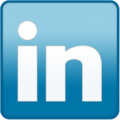2012 Must-Read Book List for Health Care Executives
Below are my newest recommendations for your reading consideration. I hope you find them to be as thought-provoking and instructive as I did, and, as always, drop me a line to let me know what you think.
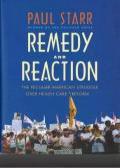 Remedy and Reaction: The Peculiar American Struggle Over Health Care Reform by Paul Starr, Yale University Press, 2011, ISBN 978-0-300-17109-9.
Remedy and Reaction: The Peculiar American Struggle Over Health Care Reform by Paul Starr, Yale University Press, 2011, ISBN 978-0-300-17109-9.
Almost three decades ago, Paul Starr, Professor of Sociology and Public Affairs and Stuart Professor of Communications and Public Affairs at Princeton University, wrote The Social Transformation of American Medicine: The Rise of a Sovereign Profession and the Making of a Vast Industry, a classic tome chronicling the history of our American health care delivery and financing system better, arguably, than any work published prior to or since then. Now he’s chronicled the history of America’s struggle over health care reform. With this book, though, he clearly shows bias, which, if you are able to ignore, does not diminish its scholarly value. Definitely a must-read for those who ascribe to the axiom: “You can’t really know where you’re going until you know where you’ve been.” His insight into the DNA of American values and who we are influences our thinking and expectations about health care is illuminating and instructive.
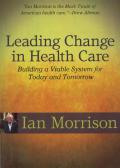 Leading Change in Health Care: Building a Viable System for Today and Tomorrow by Ian Morrison, AHA Press, 2011, ISBN: 978-1-55648-383-7.
Leading Change in Health Care: Building a Viable System for Today and Tomorrow by Ian Morrison, AHA Press, 2011, ISBN: 978-1-55648-383-7.
Drew Altman calls Ian Morrison “the Mark Twain of American health care.” I don’t know if that’s true, but his insights, wisdom and wit about our health care delivery and financing systems always makes him an enjoyable read. He doesn’t disappoint with this contribution. I was particularly engaged by the chapter titled, “Care, Not Coverage,” where he opens with a simple but powerful proposition: “Maybe our focus on insurance is wrong.”
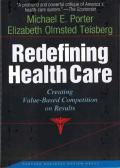 Redefining Health Care: Creating Value-Based Competition on Results by Michael Porter and Elizabeth Olmsted Teisberg, Harvard Business School Press, 2006, ISBN: 13: 978-1-59139-778-6.
Redefining Health Care: Creating Value-Based Competition on Results by Michael Porter and Elizabeth Olmsted Teisberg, Harvard Business School Press, 2006, ISBN: 13: 978-1-59139-778-6.
Many health care analysts and pundits believe that the new federal health care reform laws enacted last year laid tracks leading to a government-run, single-payer, social insurance system for all Americans. If that bothers you, then this is a book you want to read. Porter and Teisberg argue that our private system will survive only if we reform the nature of competition itself where every actor is focused on improving value. The authors go beyond theory and provide some implementable directions.
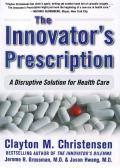 The Innovator’s Prescription: A Disruptive Solution for Health Care by Clayton M. Christensen, McGraw Hill, 2009, ISBN: 978-0-07-159208-6.
The Innovator’s Prescription: A Disruptive Solution for Health Care by Clayton M. Christensen, McGraw Hill, 2009, ISBN: 978-0-07-159208-6.
If Morrison is the Mark Twain of American health care, then Christensen is the Sorcerer’s Apprentice. He has conjured up strategies based on The Innovator’s Dilemma (an earlier book on transforming businesses) to deliver personalized medicine in a cost-effective way that, if done right, will improve quality, outcomes, patient satisfaction and overall population health. This book compliments the Porter-Teisberg selection.
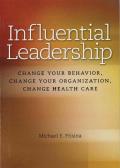 Influential Leadership: Change Your Behavior, Change Your Organization, Change Health Care by Michael E. Frisina, AHA Press, 2011, ISBN: 978-1-55648-382-0.
Influential Leadership: Change Your Behavior, Change Your Organization, Change Health Care by Michael E. Frisina, AHA Press, 2011, ISBN: 978-1-55648-382-0.
Are you the best leader you can be? Are you the right person to lead your organization through the transformation storm that has landed on health care in our nation? Skip this if your answer is “yes” to both questions. If the answer is “no,” “maybe,” or you paused to ponder, then you need to read this book. ‘Nuff said.
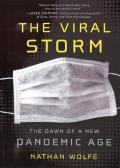 The Viral Storm: The Dawn of a New Pandemic Age by Nathan Wolfe, Times Books, 2011, ISBN: 978-0-8050-9194-6.
The Viral Storm: The Dawn of a New Pandemic Age by Nathan Wolfe, Times Books, 2011, ISBN: 978-0-8050-9194-6.
Wolfe is a young Stanford biologist who does his predecessors proud. He chronicles the history and evolution of viruses on our planet much better than did they. And, what makes this a stand-out piece of work is the cogence by which he points the way forward. Wolfe prescribes the use of novel technologies to eradicate viruses in the remote parts of our world, and, alternatively, he proffers ways to harness their power for productive uses. His provocative vision will change the way you perceive the threat of viruses to our survival.

